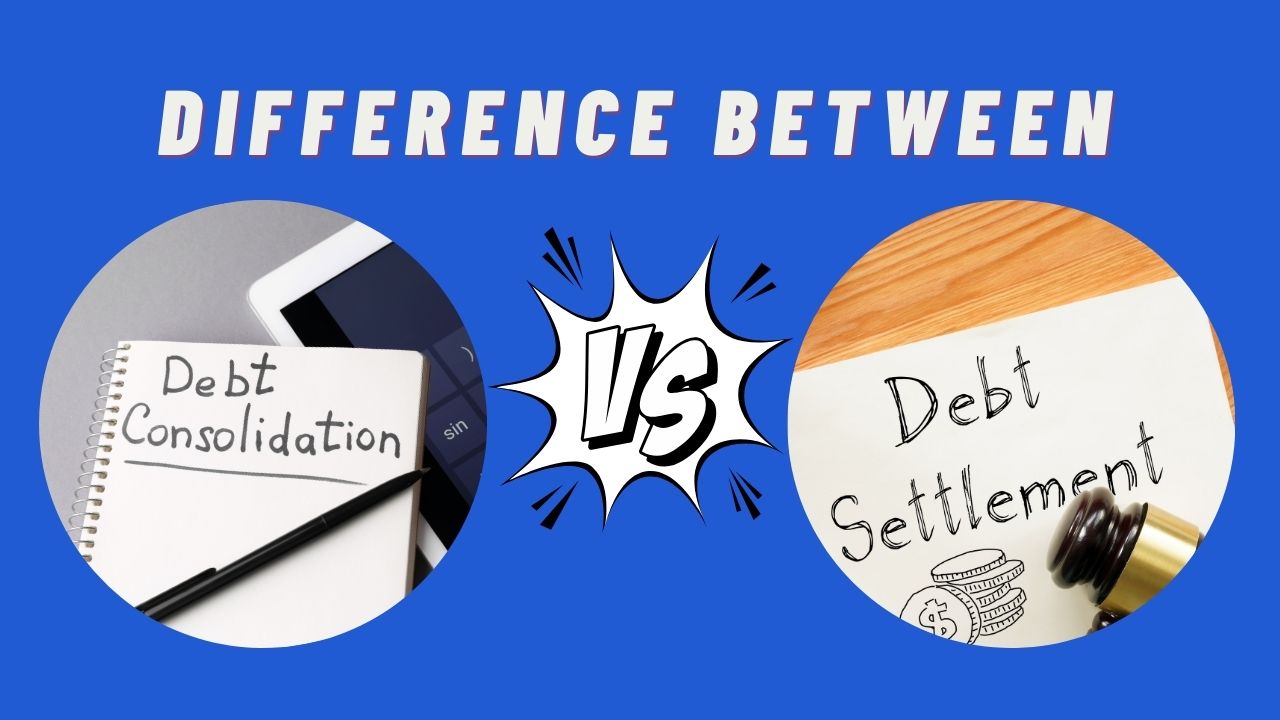What Is the Difference Between Debt Consolidation and Debt Settlement?
Debts can be either managed through consolidation or settlement. Both methods have their own set of advantages and disadvantages. It is better to understand both processes to make an informed decision between the two.
For more information, check out our blog on “Debt Settlement: Advantages vs. Disadvantages.”
Mounting debts can be a great concern as they affect the credit score. Do not worry, many people are suffering from the burden of debt. If considering debt solutions, choose between consolidation and settlement.
For guidance on managing multiple debts effectively, read our post on “Is Debt Consolidation an Effective Way to Get Out of Multiple Debts?”
Debt consolidation through a single loan makes sense to make monthly payments more manageable. With debt consolidation, you may get better interest rates on the new consolidation loan. Moreover, the extended tenure on the new debt consolidation loans helps in managing the monthly expenditure.
For insights into how consolidation impacts your credit, explore “Does Debt Consolidation Hurt Your Credit?”
Debt settlement and debt consolidation are popular methods for managing debt.
Debt settlement and debt consolidation are popular methods for managing debt. Both debt settlement and debt consolidation are financial strategies adopted to reduce debts. However, their approach to reducing debt is different from the other. A better understanding of these strategies will provide you with a clear picture of selecting the right route to financial freedom.
What does debt consolidation entail?
Debt consolidation helps in simplifying the payments. It is a convenient option that reduces interest costs and hence provides financial relief as you get away from dealing with several creditors.
Consolidation proves cost-effective with flexible repayment terms. Based on the financial condition of the borrower, the repayment period can be decided.
What does debt settlement entail?
The basis of debt settlement involves negotiating a reduced sum of the total amount owed by the creditors. Having said that, most settlement organizations vouch for creating a more detailed and structured payment plan. This method might also involve paying a substantial payment upfront.
For tips on handling this process yourself, read “How to Negotiate Credit Card Debt Settlement Yourself?”
Everything depends on the creditors. However, they are not obligated to accept the offer of settlement. They can consider the best opportunity to recover a part of the debt.
In the case of debt settlement, creditors consider the financial troubles of the individuals. Hence, it is significant to demonstrate the genuine reasons that make the financial situation a challenging one.
Factors that can influence your choice between debt consolidation and settlement
Financial goals and aspirations, creditworthiness, and current circumstances are a few factors that can influence your choice between debt settlement and debt consolidation.
If you target long-term savings, then consolidation could be an appropriate option for you to manage debts and get back to a good credit score.
Debt settlement would be the precise choice for those battling substantial amounts of debt and thus facing financial hardships. In either case, it is significant to ensure that you clarify your debt obligation.
Furthermore, resort to timely loan repayments, and avoid falling into any trap. The process of settlement involves the elimination of the debts entirely with lender approval.
The key differences between settlement and consolidation
- Repayment- Debt settlement helps pay off all debts quickly. In consolidation, individuals take a loan with a new repayment tenure.
- Process- The settlement process often significantly impacts the credit rating. In debt consolidation, the credit score may be affected but can improve with timely payments.
Conclusion
For those struggling with financial issues related to increasing debts, consolidation can be a possible solution to manage the debts and maintain a good credit score. On the other hand, settlement proves helpful in clearing off debt obligations.
For a detailed analysis of whether settlement suits your needs, refer to our blog on “Is Debt Settlement the Best Choice for Getting Out of Debt?”

